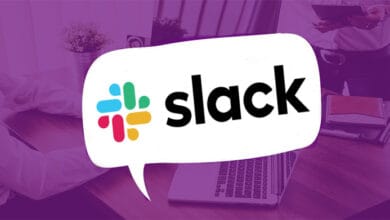
In today’s complex financial landscape, many individuals and families find themselves burdened by overwhelming debt from various sources, such as credit cards, medical bills, and personal loans. Managing multiple debts with different interest rates, payment schedules, and creditors can be challenging and stressful, leading to financial strain and uncertainty. Fortunately, nonprofit debt consolidation programs offer a viable solution for individuals seeking to regain control of their finances and work towards a debt-free future. In this comprehensive guide, we’ll explore the concept of nonprofit debt consolidation, its benefits, and how it can help individuals achieve greater financial stability and peace of mind.
Understanding Nonprofit Debt Consolidation
Nonprofit debt consolidation is a financial strategy that allows individuals to consolidate multiple debts into a single, more manageable payment plan. Unlike traditional debt consolidation services offered by for-profit companies, nonprofit debt consolidation programs are operated by charitable organizations or community-based agencies with a mission to help individuals overcome financial challenges and improve their overall well-being. These organizations work closely with clients to assess their financial situation, develop personalized debt repayment plans, and negotiate with creditors on their behalf to reduce interest rates, waive fees, and consolidate debts into a single monthly payment.
Benefits of Nonprofit Debt Consolidation
There are lots of benefits with the non-profit debt consolidation and some of them are as follows:
Lower Interest Rates: One of the primary benefits of nonprofit debt consolidation is the potential for lower interest rates on consolidated debts. By negotiating with creditors to lower interest rates or consolidate debts into a single, fixed-rate loan, nonprofit organizations can help individuals save money on interest payments and pay off their debts more efficiently. Simplified Payment Structure: Managing multiple debts with varying due dates, interest rates, and payment amounts can be overwhelming and confusing. Nonprofit debt consolidation streamlines the repayment process by combining multiple debts into a single monthly payment, making it easier for individuals to budget and stay on track with their payments.
Personalized Financial Counseling: In addition to debt consolidation services, nonprofit organizations often provide personalized financial counseling and education to help individuals improve their financial literacy and make informed decisions about managing their money. These services may include budgeting assistance, debt management strategies, credit counseling, and long-term financial planning.
Nonprofit Mission and Ethics: Unlike for-profit debt consolidation companies that prioritize profits and shareholder returns, nonprofit organizations operate with a mission-driven approach focused on helping individuals achieve financial stability and independence. By choosing a nonprofit debt consolidation program, individuals can trust that their best interests are being served, and that the organization is committed to providing ethical and compassionate assistance.
How Nonprofit Debt Consolidation Works
It is crucial to know about how the non profit debt consolidation work. Assessment: The first step in nonprofit debt consolidation is a comprehensive assessment of the individual’s financial situation, including an evaluation of their debts, income, expenses, and financial goals. This assessment helps the nonprofit organization understand the client’s unique needs and develop a personalized debt repayment plan.
Negotiation with Creditors: Once the assessment is complete, the nonprofit organization will negotiate with creditors on behalf of the client to secure favorable terms for debt consolidation. This may involve negotiating lower interest rates, waiving fees, or consolidating debts into a single, more manageable payment plan.
Debt Consolidation Plan: Based on the assessment and negotiations with creditors, the nonprofit organization will create a customized debt consolidation plan for the client. This plan outlines the terms of the consolidation, including the new monthly payment amount, interest rate, and repayment schedule.
Ongoing Support and Counseling: Throughout the debt consolidation process, nonprofit organizations provide ongoing support and counseling to help clients stay on track with their payments and achieve their financial goals. This may include regular check-ins, budgeting assistance, and financial education workshops.
Debt Repayment: Once the debt consolidation plan is in place, clients make monthly payments to the nonprofit organization, which distributes the funds to creditors on their behalf. By making timely payments and sticking to the consolidation plan, clients can gradually pay down their debts and work towards financial freedom.
fvIs Nonprofit Debt Consolidation Right for You?
Nonprofit debt consolidation is a valuable resource for individuals struggling with debt who are seeking a structured, ethical approach to debt management. If you’re feeling overwhelmed by multiple debts and struggling to keep up with payments, nonprofit debt consolidation may be the solution you need to regain control of your finances and build a brighter financial future. However, it’s essential to research and choose a reputable nonprofit organization with a proven track record of success in debt consolidation and financial counseling. By taking proactive steps to address your debt and seeking support from a nonprofit organization, you can take the first step towards achieving greater financial stability and peace of mind.



